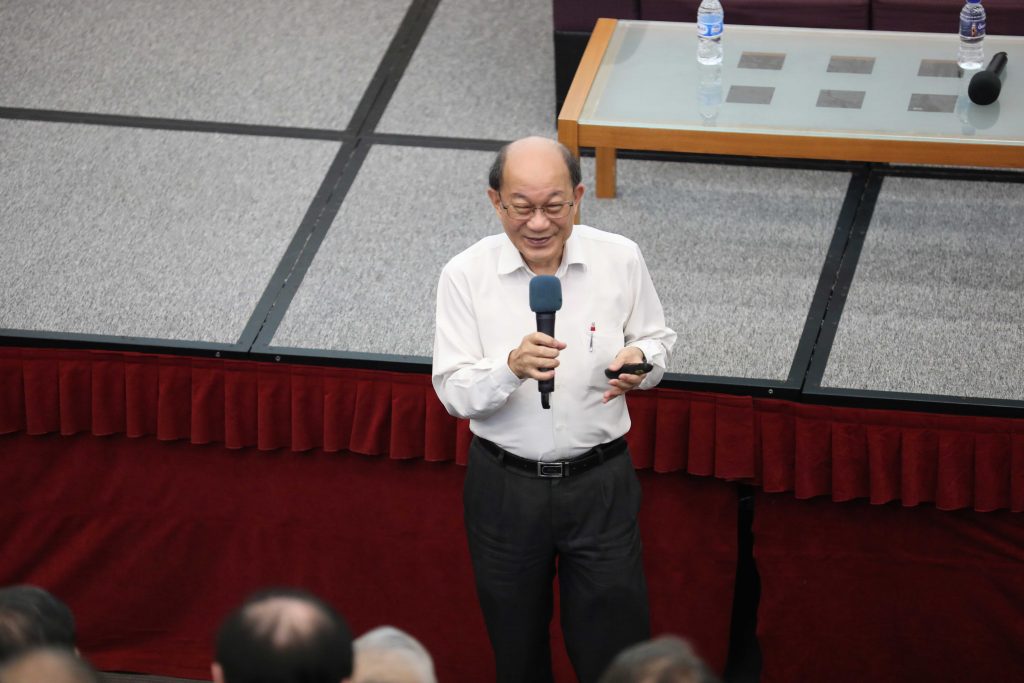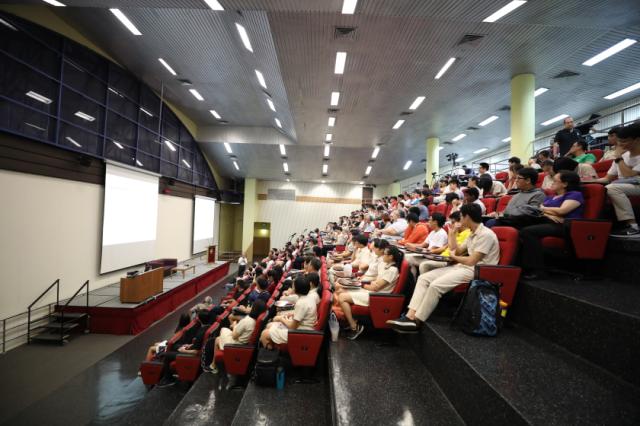Public Lecture on Nuclear Power Technology and Nuclear Power Development in ASEAN
Is Singapore ready to harness nuclear power to meet the demands of its energy needs? How should Singapore react to some of its neighbouring countries which either are actively exploring the adoption of nuclear power or have already engaged nuclear technology suppliers to develop nuclear power plants? These burning questions and many more were the topics of a public lecture delivered by Prof Lim Hock on Nuclear Power Technology and Nuclear Power Development in ASEAN held at Hwa Chong Institution on 29 April.
Prof Lim currently serves as Director of Research Governance and Enablement in the Office of Deputy President (Research and Technology). In April 2014, NUS Senate approved the setting up of the Singapore Nuclear Research and Safety Initiative (SNRSI) as a research unit among the University-Level Research Institutes/Centres. Prof Lim Hock was appointed its founding director to oversee the development of this research facility. So there is no better person to deliver a message on nuclear power technology and development than Prof Lim, who is also professor of the Department of Physics.


Many high school students, academics and members of the public were drawn to the talk. Prof Lim gave an introduction on fundamental atomic physics which then led to a discussion on nuclear fission. The prevention of fission products leakage and core meltdown is key consideration in any nuclear power plant design. Prof Lim also brought audience through the different generations of nuclear power generators which vary in their technology. Issues like the danger of fission products, safe storage of nuclear waste, and advantages of nuclear power were also explored.
In view of regional development of nuclear power technology, Singapore needs to strengthen its capabilities in nuclear science and technology before any decision on nuclear power development here can ever be made. The current efforts of SNRSI focus on the recruitment of researchers, and the development of the research programmes and laboratories. Scholarships are offered annually for Singaporean graduates to pursue postgraduate programmes in nuclear safety, radiochemistry, radiobiology, and related areas of nuclear science and engineering.
The questions posed by audience during the question and answer session were direct and thought-provoking. From nuclear power plant design to alternative sources of energy, there were no straightforward solutions to some of the issues raised.
Indeed the potential benefits and significant risks of nuclear power will always be points of contention for years to come. What is clearly needed in the Singapore context is the development of technical expertise in the face of energy crisis as ASEAN region goes nuclear.
